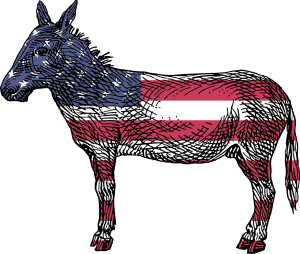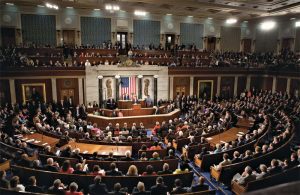 To win most elected seats on the Princeton Ballot, one must simply receive more votes than any other singular opponent. So, it would make sense that most often the candidate that wins, is the one whose party holds a majority amongst the electorate. New Jersey, Mercer County and Princeton are all democratic strongholds, therefore, more often than not, a Democrat wins.
To win most elected seats on the Princeton Ballot, one must simply receive more votes than any other singular opponent. So, it would make sense that most often the candidate that wins, is the one whose party holds a majority amongst the electorate. New Jersey, Mercer County and Princeton are all democratic strongholds, therefore, more often than not, a Democrat wins.
Mercer County has not had a Republican leader since 2004. In fact, there has not been a Republican elected in all County government for years. They have run for seats as County Freeholder/County Commissioner but not won since 1997. Other County roles like Sheriff, Clerk and Surrogate have similarly reelected Democrats.
In Princeton, there have only been a total of five Republican candidates in all the races for Mayor and Council since consolidation in 2013. 2016 saw one Republican vie for Mayor, and 2013, 2015 and 2018 each had at least one try to gain a seat on Council. They didn’t win. The last Republican running for Council earned only 13% of the vote.
The unique aspect of political races in Princeton is that in recent years, the races have little to no contest at all. Not just by an opposing party but by any opposing candidates– even in the primaries.
Are more and diverse candidates needed in politics? Should local elections have more people run, even if from the same party? Should Republican and 3rd party candidates throw their hats into the races to provide more opportunity of choice? And amongst those that do choose to run, are we seeing enough of a reflection of the community’s make-up?
THE SINGULAR DEMOCRAT
 Since 2020 there have never been more Democrats running in the primary for Princeton Council than the number of open seats. And no other party candidates ran, so all races were uncontested, making it more of an official process than anything. Just two years before that, 6 candidates campaigned for the 2 available seats.
Since 2020 there have never been more Democrats running in the primary for Princeton Council than the number of open seats. And no other party candidates ran, so all races were uncontested, making it more of an official process than anything. Just two years before that, 6 candidates campaigned for the 2 available seats.
And for Mayor, not since the first elected Mayor of the consolidated Princeton has there been a contest, neither in the primary or general election.
“Having competitive elections means candidates must campaign. They should knock on doors and listen to what is on the minds of residents. They debate, take positions, or defend votes they have taken. That is good for democracy,” says Jo Butler, who was a 2-term member of the consolidated Princeton Council following time as a Princeton Borough Councilwoman. “During a campaign, the rules of engagement are different. There can be debate and discussion, but that seems to have disappeared from the local political landscape.”
Butler and former Councilwoman Jenny Crumiller have been vocal in their efforts to get people to run for office. They believe there is more accountability and transparency when candidates campaign to get and work to keep their role. They have developed the Princeton Democrats Information Page to help anyone who may have an interest, learn what to do. Princeton Community Democratic Organization (PCDO) and Princeton Democratic Municipal Committee (PDMC) used to offer joint gatherings. They were intended to inform about the party, local politics, how to serve in elected and other capacities, and for potential candidates to learn how to get involved and run for office. But those gatherings have not been offered in recent years.
“The last one I recall was in 2019. Well, you know what happened after that with the pandemic, lockdowns, and it taking a while for people to feel comfortable gathering together in confined spaces with relative (or complete) strangers,” recalls Owen O’Donnell, past Chair and current District 16 representative of the PDMC. “We had discussions about having one late last year or early this year, but we were so involved in a competitive legislative race in our district and then I had personal and business issues that prevented me from devoting much time to this.”
Butler and Crumiller say they offered to help get the gatherings going again, but the groups decided not to host them now.
“When the suggestion was brought up to hold a similar event at the end of December, our organization was amidst reorganization and endorsement planning efforts, making it challenging to organize something substantial at such short notice,” explain Nick DiDomizio, President of PCDO. He says while past gatherings were informative, they did not appear to increase the number of candidates. “While past events have aimed to provide insight into running for office and becoming more involved in local politics, we also recognize the importance of encouraging individuals to direct their own political ambitions and commitments. In addition to the programs we offer, the PCDO provides information and resources on our website in a dedicated resource section entitled, “New to Princeton and Looking to Get Involved?” and has for some time now.”

With all these opportunities, why has Princeton turned not just to one-party rule, but no contest elections? Butler thinks it is in part because the positions on Council have become a full-time role, an opportunity not everyone has the luxury of pursuing. Many have also shared with Princeton Perspectives they feel candidacy is controlled by a core group in town.
“That is PCDO and PDMCs fault and Janice Miranov’s [Mercer County Democratic Committee Chair] fault, because they make the decisions on who can run,” another active local Democrat shared with Princeton Perspectives, anonymously. PCDO says they endorse, but don’t pick candidates and their free membership is open to all of Princeton’s registered Democrats.
To date, one new candidate, Board of Education member Brian McDonald, has announced his bid to run as a Democrat for a seat on Council. Eve Neidergang is not seeking reelection, so her seat is open. And Leighton Newlin is hoping to retain his. Mayor Mark Freda has shared he will run again and so far, no one else has announced a campaign against him.
There’s still time, however. Democrat and Republican candidates have until March 25th to file paperwork for the primary, and independent candidates need to file by June 4th to be on the general election ballot.
PARTY POLITICS
 “What happens in a place like Princeton, when you have decades of a uni-party running, people in those towns start to feel isolated, their voices aren’t being heard. It’s not to say we’ll never agree on those instances, but our republic wasn’t created for us to agree on everything. That’s reserved for communist countries. If you really believe in America, in the American dream, you believe in diversity of thought, diversity of political representation,” states Darius Mayfield, 2022 Republican candidate for Congress against Bonnie Watson Coleman, who is campaigning again this year for the US District 12 seat. “If you have a city council with 6 people, why not put 1 or 2 Republicans on there? It holds people accountable at the same time.”
“What happens in a place like Princeton, when you have decades of a uni-party running, people in those towns start to feel isolated, their voices aren’t being heard. It’s not to say we’ll never agree on those instances, but our republic wasn’t created for us to agree on everything. That’s reserved for communist countries. If you really believe in America, in the American dream, you believe in diversity of thought, diversity of political representation,” states Darius Mayfield, 2022 Republican candidate for Congress against Bonnie Watson Coleman, who is campaigning again this year for the US District 12 seat. “If you have a city council with 6 people, why not put 1 or 2 Republicans on there? It holds people accountable at the same time.”
As of publication, no Republicans have yet announced bids for mayor or council this year in Princeton. It was 2018 the last time a Republican ran for a Council seat, and 2016 when one campaigned for Mayor.
At the County, there have been Republicans vying for all elected offices, but for decades the Democrats have beat them out. Democrats Paula Sollami Covello has been County Clerk since 2006, Surrogate Diane Gerofsky has held her post since 1996 and Sheriff Jack Kemler has been reelected since 2010. It wasn’t always this way. Mercer County was led by a Republican County Executive for 24 years, until 2004.
The state level has been a bit different. In NJ District 16, our Senator and representatives in the Assembly were all Republican until Andrew Zwicker broke the hold when elected as Assemblyman in 2016. Roy Freiman then joined him in 2018 and in 2022, Zwicker took the Senate seat from Republicans when he was voted into that role. That year, Democrats took all the District 16 seats.
In the latest election, only 17% of the Princeton vote went to the Republican Senate candidate, and approximately 77% more Princeton voters chose the Democratic Assembly candidates.
At the national level, Princeton was part of a district that had a 33-year Republican reign in Congress until 1999 when Rush Holt flipped the seat. His eight terms have been followed by five terms of Bonnie Watson Coleman (D).
“Republican representation, not just here in this area but across the state, has fallen quite a bit. They started getting out-fundraised, started not filling committee seats that needed to be filled. Maybe some Republicans got a little lazy and started feeding into that notion that NJ is turning Democratic and didn’t work as hard as they did in previous cycles,” Mayfield explains.
 As he kicks off his 2024 campaign, Mayfield says he’s willing to put in the hard work because despite his affiliation as a Republican, he sees there are voters out there from all parties that align with his thinking, including Princeton’s Chinese American population. And when it comes to issues like education/school choice or the border, he hears concerns from voters of all parties alike. As there are more unaffiliated voters in US District 12 than there are Democrats, he says it’s more about where they land than how everyone is registered.
As he kicks off his 2024 campaign, Mayfield says he’s willing to put in the hard work because despite his affiliation as a Republican, he sees there are voters out there from all parties that align with his thinking, including Princeton’s Chinese American population. And when it comes to issues like education/school choice or the border, he hears concerns from voters of all parties alike. As there are more unaffiliated voters in US District 12 than there are Democrats, he says it’s more about where they land than how everyone is registered.
“I’m a man that speaks for everyone. Not black, not white, American,” Mayfield exclaims. “I feel like I’m the guy that can relate because I come from humble beginnings, born in New Brunswick, NJ but my mom moved us to S. Brunswick when I was young. I understand the plight of Black and Brown as well as Caucasian from those area, as I was fortunate enough to live in both at the end of the day. NJ is one of the most diverse states in the country, especially diversity of political thought, so I am vying for the vote and support of Republicans, unaffiliated as well as Democrats.”
REPRESENTATIVE GOVERNMENT
 Beyond what party one is affiliated with, there is a lot of talk in recent years about who the actual candidate is – based upon gender, race, religion and more. Some say, a person with the experience, conviction and know how to do the job best should get it. And while that may be true, others say there is a bit more to it.
Beyond what party one is affiliated with, there is a lot of talk in recent years about who the actual candidate is – based upon gender, race, religion and more. Some say, a person with the experience, conviction and know how to do the job best should get it. And while that may be true, others say there is a bit more to it.
“It’s important to keep in mind elected officials are at the end of the day just people. As people we draw upon our experiences, networks and perspectives. Government operates better and more equitable when we have people of more diverse backgrounds in office and leadership,” Former NJ District 16 Assemblywoman Sadaf Jaffer shares. Jaffer was one of the first Asian American women and Muslim Americans to serve in the NJ legislature.
New Jersey is a progressive state, yet there is still a disparity between its population and its representation. The state is 51% female but has never sent a woman to the U.S. Senate. The Garden state elected its first woman to statewide office in 1994, when Christine Todd Whitman became governor. The first woman of color and first Black woman to ever be elected to statewide office in NJ was the late Sheila Oliver in 2018, then Lt. Governor to Phil Murphy. In our state Legislature, where Jaffer served, the last election voted in fewer woman than the previous session. Today they make up 34% of those in that office. Before serving one term in the Assembly, Jaffer was Mayor of nearby Montgomery Township.
“During the pandemic there was a rise in domestic violence, and I heard some women were looking for help and resources. In our township communications we highlighted domestic violence resources. For those women who reached out to me, I wonder if there had been a man in the position of mayor, if those women would’ve been comfortable,” Jaffer explains. “In legislation, the one I’m most proud to have sponsored is the Language Access Bill, which gets documents translated into different languages. In speaking to immigrant groups, they highlighted this as one of their # 1 needs. Giving those practical examples show the importance of being of different communities and who their communities will draw to if they need help.”
 One of the most diverse states in the country, NJ has the second largest Jewish and Muslim populations. It also has one of the largest Cuban and Peruvian populations stateside. According to the American Community Survey Data, New Jersey’s population is 49% minority (Hispanic, Black, Asian and other). Yet, in the state legislature, those minority populations comprise only 31% of elected officials. So, why is there not more diversity in the makeup of our elected officials?
One of the most diverse states in the country, NJ has the second largest Jewish and Muslim populations. It also has one of the largest Cuban and Peruvian populations stateside. According to the American Community Survey Data, New Jersey’s population is 49% minority (Hispanic, Black, Asian and other). Yet, in the state legislature, those minority populations comprise only 31% of elected officials. So, why is there not more diversity in the makeup of our elected officials?
Research shows that if they are on the ticket, minority candidates are as equally likely to win as their white counterparts. To be elected, however, one has to run, and there are a lot of factors that weigh into that decision. Sheshouldrun.org offers 26 reasons that have kept women from doing so. They include a need to balance family responsibilities, not being asked or knowing where to start, not having financial stability to do so and not wanting to be judged for who they are. Many of these reasons are similar for other minorities such as Black, Latino and AAPI. Though Asians are the fasting growing demographic in the US, they are the most unrepresented group in politics.
“I think it can seem like a real insiders’ world, where you need to know certain people and be connected. Perhaps people from diverse communities don’t have those connections. Formal training and mentorship programs are important but also political parties need to make it a priority to diversify their candidate pool,” recalls Jaffer. “Unfortunately, in 2021 when I ran there were websites and text messages that said I was a radical, an extremist and more. It’s just very tough for south Asian women candidates of a Muslim background to run. There has to be some consideration for safety and protection.”
2024 LOCAL POLITICS
Will there be more diversity in 2024?
Princeton will vote for both municipal and county offices. There are no state level elections this year, but in the national races, Congress, 1 Senate seat and President are up for election.
With time still available for newcomers to join the races, it will be revealed over the next several months whether greater diversity is presented to voters for their consideration.

Lisa Jacknow spent years working in national and local news in and around New York City before moving to Princeton. Working as both a TV producer and news reporter, Lisa came to this area to focus on the local news of Mercer County at WZBN-TV. In recent years, she got immersed in the Princeton community by serving leadership roles at local schools in addition to volunteering for other local non-profits. In her free time, Lisa loves to spend time with her family, play tennis, sing and play the piano. A graduate of the S. I. Newhouse School of Public Communications at Syracuse University, Lisa was raised just north of Boston, Massachusetts but has lived in the tri-state area since college. She is excited to be Editor and head writer for Princeton Perspectives!
